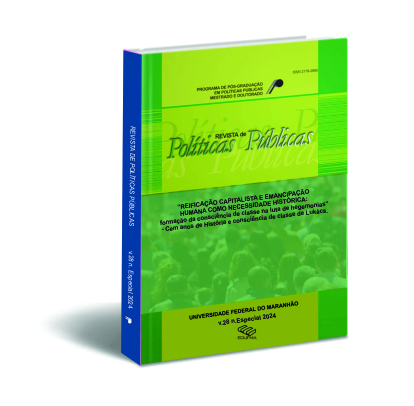POLITICAL ECOLOGY AND BIODIVERSITY: socio-environmental conflicts and social metabolism
DOI:
https://doi.org/10.18764/2178-2865v28nEp.2024.21Keywords:
Political ecology, social metabolism, territoryAbstract
This article aims to reflect on the importance of political ecology and biodiversity understood as the variability of living beings that inhabit the planet. The principle is that there is no politics on one side and nature on the other; all politics is defined in relation to nature by the fact that each property and each function depends on the conflicting will to limit and demarcate a territory with the intention of guiding public life based on an orthodox or heterodox political economy. The predatory relationship imposed by capitalism on nature has led us to a systemic ecological crisis in the various cycles that make up the biosphere. It is the political awareness of the limits of this model of predatory and violent growth, posed as a major challenge to controlling climate change that puts human life at risk, that gave rise to political ecology and movements.
Downloads
Downloads
Published
How to Cite
Issue
Section
License

This work is licensed under a Creative Commons Attribution-NonCommercial-NoDerivatives 4.0 International License.
UNIVERSIDADE FEDERAL DO MARANHÃO
PROGRAMA DE PÓS-GRADUAÇÃO EM POLÍTICAS PÚBLICAS
REVISTA DE POLÍTICAS PÚBLICAS
Termo de Transferência de Direitos Autorais
Como condição para a submissão, os autores devem declarar a autoria do trabalho e concordar com o Termo de Cessão de Direitos Autorais, marcando a caixa de seleção após a leitura das cláusulas)
- Declaro que participei da elaboração do trabalho referido, em parte ou no todo; que não omiti qualquer ligação ou acordo de financiamento entre os autores e instituições ou empresas que possam ter interesses na publicação desse trabalho;
- Declaro tratar-se de texto original, isento de compilação, em parte ou na íntegra, de minha autoria ou de outro (os) autor (es);
- Declaro que o texto não foi enviado a outra revista (impressa ou eletrônica) e não o será enquanto a possibilidade de sua publicação esteja sendo considerada pela RPP;
- Declaro que transfiro os direitos autorais do trabalho especificado para a RPP, comprometendo-me a não reproduzir o texto, total ou parcialmente, em qualquer meio de divulgação, impresso ou eletrônico, sem prévia autorização dessa Revista.
- Declaro que tenho conhecimento que a cessão do texto à RPP é gratuita e, portanto, não haverá qualquer tipo de remuneração pela sua utilização.

Este obra está licenciado com uma Licença Creative Commons Atribuição-NãoComercial-SemDerivações 4.0 Internacional.







